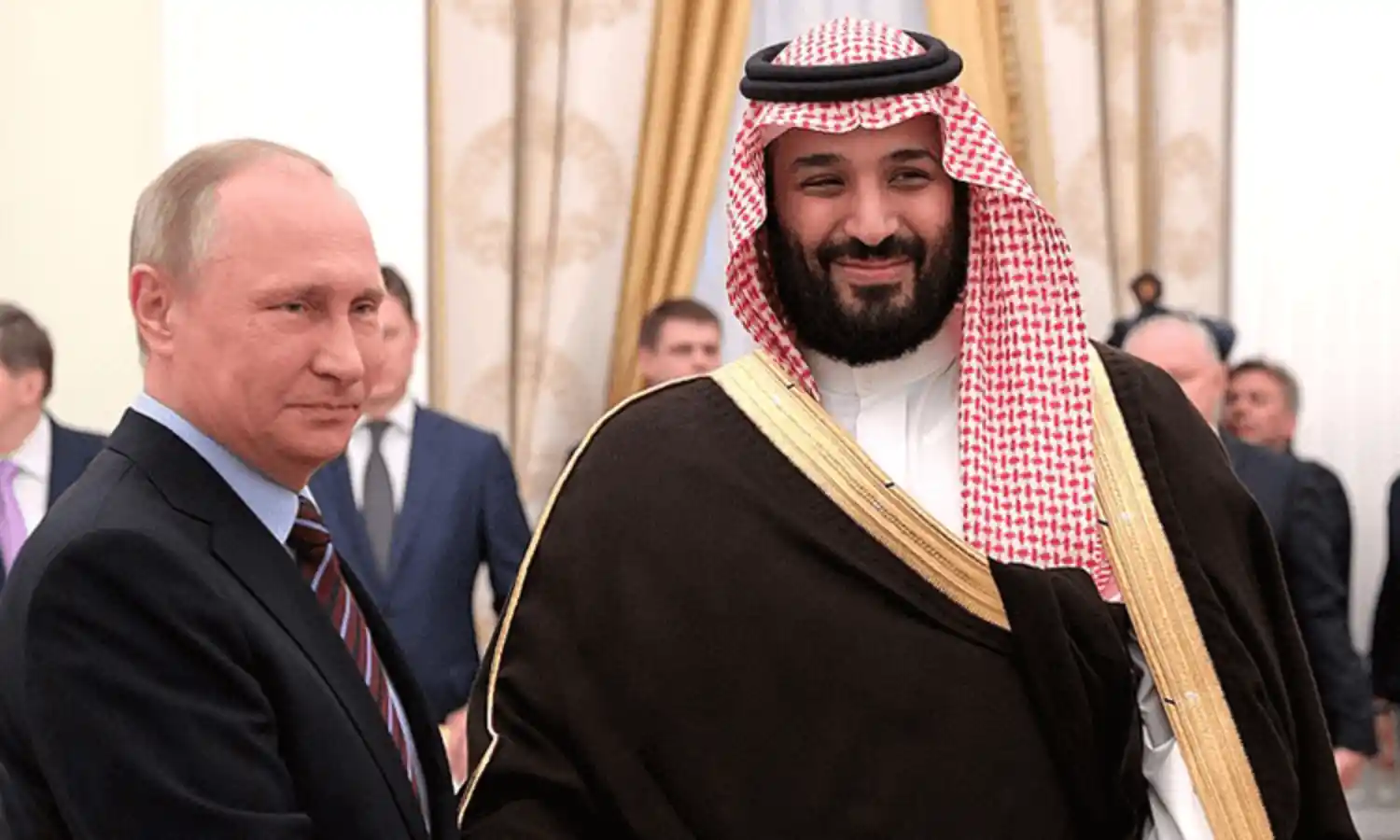Russians Enter the US-Saudi Tent Post Khashoggi
Washington's capacity to stop the intruder significantly weakened
Saudi Arabia has inked the deal, finally, after nearly two years of discussions to buy Lockheed Martin’s Terminal High Altitude Area Defense (THAAD) weapon system. The massive$15 billion deal involves Saudi Arabia buying 44 THAAD launchers, missiles and related equipment. The Trump administration had vigorously canvassed for the arms deal, including personal intervention by President Trump.
The US state department, typically, justified the sale of the advanced ABM system as signaling the “long-term security of Saudi Arabia and the Gulf region in the face of the growing ballistic missile threat from the Iranian regime and Iran-backed extremist groups.”
In political terms, there are two ways of looking at the THAAD deal – one, as Saudis caving in to US pressure in the backdrop of the regime’s critical need of Trump’s support on the Jamal Khashoggi affair; and, two, Saudis as wooing the powerful military-industrial complex in America to use its influence in the US Congress to deflect any moves by the political establishment to impose punitive measures against the Saudi regime.
Prima facie, Trump stands vindicated in his stance that the Saudis are the top buyers of US -made arms and any retaliatory sanctions over the killing of Khashoggi would seriously hurt American business interests. In an interview with the CBS “60 Minutes” last month, Trump had said, “I tell you what I don’t want to do. Boeing, Lockheed, Raytheon, all these. I don’t want to hurt jobs. I don’t want to lose an order like that. There are other ways of punishing, to use a word that’s a pretty harsh word, but it’s true.” Trump maintains that if the US cuts off arms supplies to Saudi Arabia, the latter would simply turn to Russia and China as alternate sources.
Of course, the flip side is that Riyadh can now count on the military-industrial complex to lobby for Saudi interests in the corridors of power in Washington. This is important because the US intelligence establishment, media and the Congress are in a hostile mood vis-à-vis the Saudi regime. Curiously, the US Senate may be voting next week on a bipartisan legislation that would ban any US involvement in the Saudi-led war in Yemen.
The point is, the Khashoggi affair still remains a potential minefield for Trump insofar as questions are being asked why he is projecting himself as a stakeholder in preserving the US-Saudi ties. Hillary Clinton openly alleged yesterday that Trump is “part of the cover-up as to what happened” in Khashoggi’s murder. Clinton said, “We have a president who is part of the cover-up as to what happened in that consulate or embassy when Mr. Khashoggi was murdered. And we have a president and those closest to him who have their own personal commercial interests.”
However, at the end of the day, it is also not as if Trump can hope to leverage Saudi policies. The Saudi Crown Prince Mohammed bin Salman (MBS) appears to have put the worst period behind him. He doesn’t look shaky anymore. He just rounded off a successful regional tour of Arab countries before heading for Argentina to attend the G20 summit. Quite obviously, there will be no social boycott of MBS in Argentina tomorrow. The Russian President and the UN Secretary-General have already indicated their intention to meet MBS on the sidelines of the summit. Trump is almost certain to chat up MBS, too.
Make no mistake, Trump is going out of the way to help MBS survive and is not taking chances. He even blocked the CIA Director Gina Haspel from attending a US Senate hearing on Khashoggi murder on Monday, fearing that the latter might implicate MBS, which in turn might provoke Saudi retaliation against American interests on vital issues such as the world oil market.
However, it is also not as if Saudis will behave exactly as Trump desires. Given the complex US-Saudi-Russian matrix at work in the world oil market, Saudis are aware that they are holding a few ace cards. Analysts expect that the Saudis may well ignore Trump’s pleas and decide to cut oil production quite substantially to mop up the severe global oversupply presently and bring the oil price to the desired range of $70-80 (from the current price of $59). Saudi Arabia needs an oil price of $75 to balance its budget and MBS’ reform programe (Vision 2030) to diversify the Saudi economy needs huge investments.
Put differently, MBS’ Saudi First grates against Trump’s America First when it comes to the oil market. On the contrary, Saudis and Russians have a congruence of interests in regard of oil price being kept at a reasonable level. (Russians have budgeted for oil price to be in the region of $55 or so, which means substantially more income will accrue if the Saudis succeed in jacking up the price to $75-80.)
Ironically, Trump had mentioned Riyadh’s importance to stabilizing oil markets as one main reason why the US should exonerate Saudi Arabia in the Khashoggi affair. However, as a CNBC commentary put it, “The pivotal question hanging over oil markets remains that of production cutbacks. Who will tighten their taps, and by how much? The answers to these questions will be negotiated by the world’s largest crude producers — Russia, Saudi Arabia and the U.S. — at this week’s G-20 meeting in Buenos Aires, Argentina, and then at the OPEC+ meeting in Vienna, Austria, the following week.”
All in all, in geopolitical terms, Russians have entered the 7 decades old US-Saudi tent and the tumultuous Khashoggi affair may have significantly weakened Washington’s capacity to stop the intruder.
(M.K.Bhadrakumar served as a career diplomat in the Indian Foreign Service)





